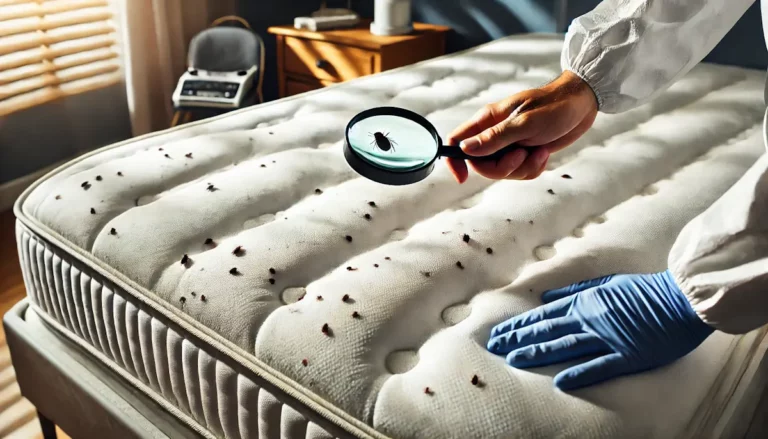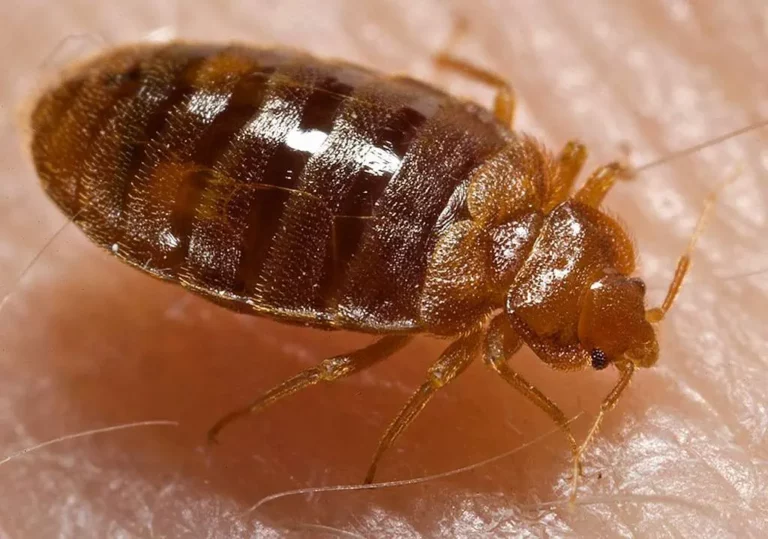Table of Contents
ToggleBed bugs are the stuff of nightmares for many homeowners and renters. These pesky little insects are not only a nuisance but also notoriously difficult to eradicate. One of the most pressing questions people have about these critters is, “How long can bed bugs live without food?” The answer to this question is essential for understanding how to effectively combat an infestation and prevent their return.
In this article, we’ll delve into the bed bug survival period, the life cycle of bed bugs, and their overall lifespan. With a better understanding of these factors, you can take informed steps to protect your home from these unwelcome guests.
Understanding Bed Bug Biology
Before we can discuss how long bed bugs can survive without food, it’s important to understand a little bit about their biology and life cycle.
What Are Bed Bugs?
Bed bugs are small, oval-shaped insects that feed on the blood of humans and animals. They’re reddish-brown in color, and their bodies swell after feeding. Although they’re not known to transmit diseases, their bites can cause itching and discomfort.
The Bed Bug Life Cycle
Bed bugs go through several stages in their life cycle: egg, nymph, and adult. The nymph stage has five substages, and bed bugs must feed at least once before progressing to the next stage. The entire life cycle from egg to adult can take anywhere from five weeks to four months, depending on conditions like temperature and food availability.
Bed Bug Survival Period Without Food
Now, let’s get to the heart of the matter: how long can these resilient insects survive without a blood meal?
The Influence of Temperature and Age
The survival period of bed bugs without food can vary greatly and is influenced by factors such as temperature and the bed bug’s life stage. In general, bed bugs can survive without food for about 20 to 400 days. Nymphs require more frequent feeding than adults and can only survive for a few months without a blood meal, whereas adult bed bugs can go much longer.
Adult Bed Bugs
Adult bed bugs are the most resilient when it comes to fasting. They can typically live for about 2 to 6 months without a meal. However, in cooler conditions, adult bed bugs can survive for a year or even longer without feeding.
Nymphs and Eggs
Nymphs, on the other hand, are more vulnerable. They can only survive for a few weeks to a few months without food, depending on the temperature and the stage of development. As for bed bug eggs, they don’t require food to develop into nymphs, but the process is faster when the temperature is favorable and food is readily available for the hatching nymphs.
Factors Affecting Bed Bug Lifespan
The lifespan of a bed bug is influenced by several factors, including environmental conditions and access to food.
Optimal Conditions for Survival
Bed bugs thrive in temperatures between 70 and 80 degrees Fahrenheit (21 to 27 degrees Celsius). Under these conditions, and with regular access to food, bed bugs can live for about 10 months to a year.
Starvation and Mortality
When bed bugs cannot find food, their body functions slow down, and they enter a state similar to hibernation. This allows them to conserve energy and survive for extended periods without feeding. However, eventually, starvation will lead to mortality.
Implications for Bed Bug Control
Understanding bed bug survival without food is crucial for effective pest control. If you’re dealing with an infestation, here are some key takeaways:
The Need for Prolonged Treatment
Since bed bugs can live for months without food, it’s important to continue treatment for a significant period after you think all the bugs have been eradicated. This will help ensure that any stragglers that have been in hiding without feeding are also eliminated.
Sealing and Isolation
One method to combat bed bugs is to isolate infested items and seal them in bags for an extended period. This can help starve any hidden bugs. However, given their ability to survive without food for so long, items may need to be sealed for a year or more to be effective.
Professional Pest Control
Due to the resilience of bed bugs, professional pest control is often the most reliable way to get rid of an infestation. Pest control experts can use a combination of chemical and non-chemical methods to ensure all bed bugs, including eggs and nymphs, are destroyed.
Preventing Bed Bug Infestations
Prevention is key when it comes to bed bugs. Here are some tips to keep these pests at bay:
Regular Inspection
Regularly inspect your living spaces, especially bedrooms, for signs of bed bugs. Look for small, rust-colored stains on sheets, mattresses, and furniture.
Avoid Secondhand Furniture
Be cautious when bringing secondhand furniture into your home, as it could be harboring bed bugs. Thoroughly inspect and clean any used items before they enter your living space.
Travel Smart
When traveling, keep your luggage off the floor and inspect hotel rooms for signs of bed bugs before settling in.
Conclusion
In conclusion, bed bugs can live a surprisingly long time without food, making dealing with infestations challenging. By understanding their survival period, lifespan, and the conditions that affect their ability to live without a blood meal, you can take more effective measures to prevent and control bed bug infestations in your home.
Remember that while DIY methods can be helpful, professional pest control services are often necessary to fully eradicate bed bugs due to their hardiness and persistence. On Demand Pest Control offers expert solutions to ensure thorough eradication and prevention of bed bugs. Our services are available in various locations, including Broward County, Lee County, and Collier County. Contact On Demand Pest Control today to schedule a consultation and take the first step towards a pest-free home.




